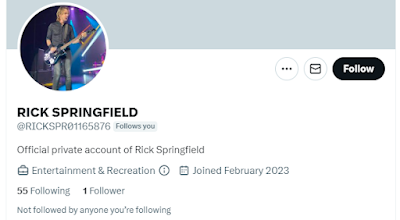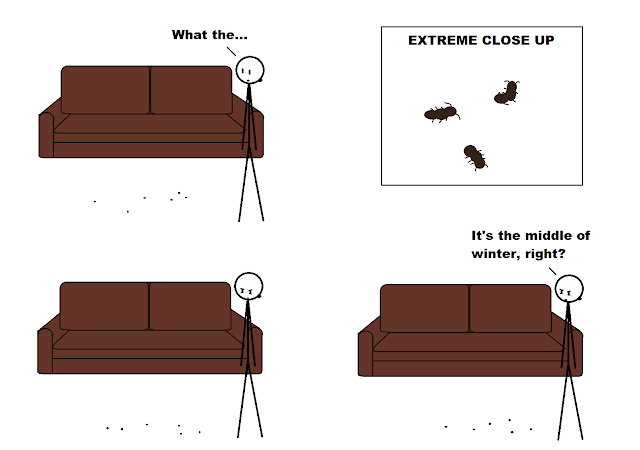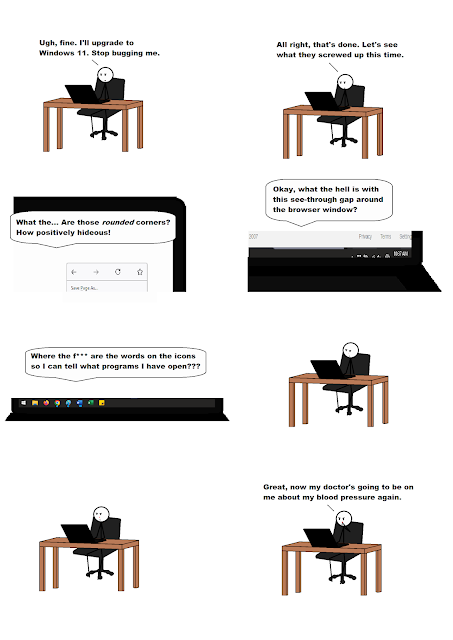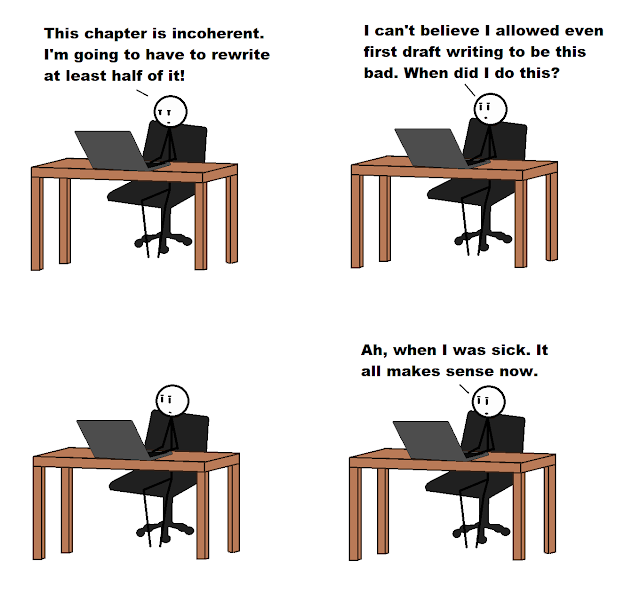Wow, this is still going on.
There are lots more words that come from the
Proto
Indo European wer-,
to
turn or bend. Things are going to get weird.
Seriously. Weird. Ever wonder
where it came from? It showed up in the
fifteenth century meaning having power over fate. What made it change?
Macbeth.
Specifically, eighteenth-nineteenth century productions of
Macbeth,
which had the Weird Sisters be odd looking, so by the nineteenth century,
people started using weird to mean odd instead of controlling fate. The word
comes from the
Old English wyrd, which
means
fate, from the
Proto Germanic wurthiz.
That’s from the Proto Indo European
wert-, to turn or wind, from wer-. You
turn fate, I guess, and that plus Shakespeare made weird.
Next, worry showed up in the
fourteenth century, but it meant to
kill by biting/shaking the throat, as done by a wolf. Yeah. From there, it
started to mean strangle, and by the fifteenth century, it was used
metaphorically, meaning to bother something (as in, worry away at), and then,
by 1822, it came to mean to feel anxiety. It comes from the Old English
wyrgan,
to strangle, from the Proto Germanic
wurgjan,
which is from the Proto Indo European
wergh-, from the root wer-. A wolf
biting something by the throat and shaking it back and forth turned into worry.
And to make things weirder,
worth. It
comes from the Old English
weorþ,
which is basically pronounced the same and means
worth, honored, or price.
It’s from the Proto Germanic
wertha-, toward or opposite—like an
equivalent, one thing being equal to another, showing its value. It’s actually
not certain that it’s from wer-, but that’s the theory, and considering the
-vert words often talked about turning towards each other, it’s not a crazy
idea.
Wry showed up in the
early-mid sixteenth century, where it meant distorted, not
being likened to humor and wit until the late sixteenth century. It comes from
the Old English
wrigian,
to incline or tend towards,
from the Proto Germanic
wrig-, and Proto Indo Eruopean
wreik-, to
turn, from the root wer-. So wry used to mean distort—and awry kind of still
does. It actually showed up earlier, in the
late fourteenth century,
with the a- meaning
on, so awry is
distorted (or twisted, or turned) on.
Finally today, wrap. Yes, like a
covering. It showed up in the
early fourteenth century as a verb and late fifteenth century as a noun. It’s history isn’t totally
known, but it’s thought to be Scandinavian, and the theory is it’s from the
Proto Indo European
werp-, turn or wind, from wer-, and it does make
sense since wraps wind around something. But you know how these etymologies go.
It’s just as likely not to be related at all!
Sources
Online
Etymology Dictionary
University of Texas at Austin Linguistic Research Center
University of Texas at San Antonio’s page on Proto Indo European language
Tony Jebson’s page on the Origins of Old English
Old
English-English Dictionary






